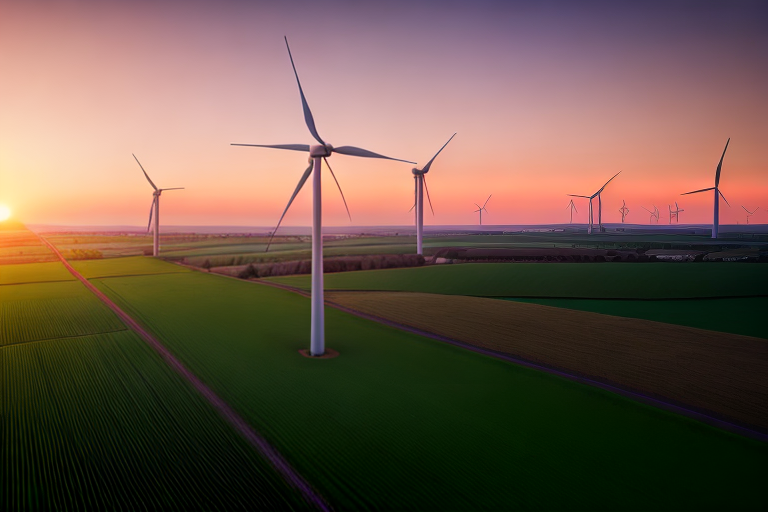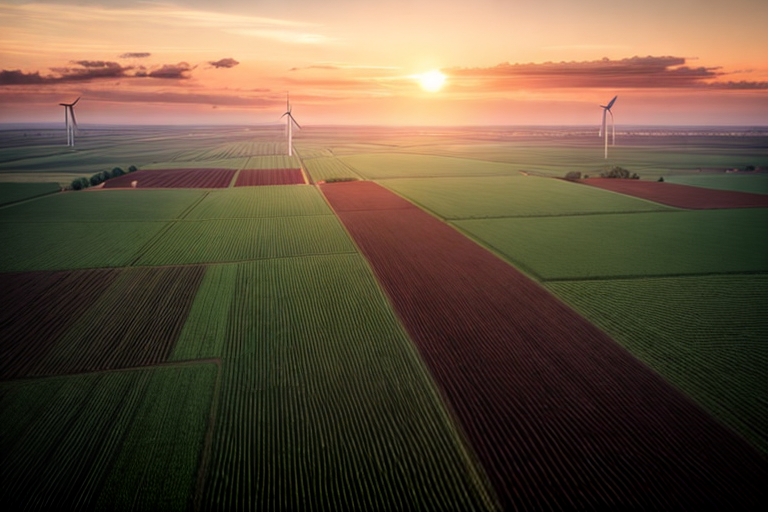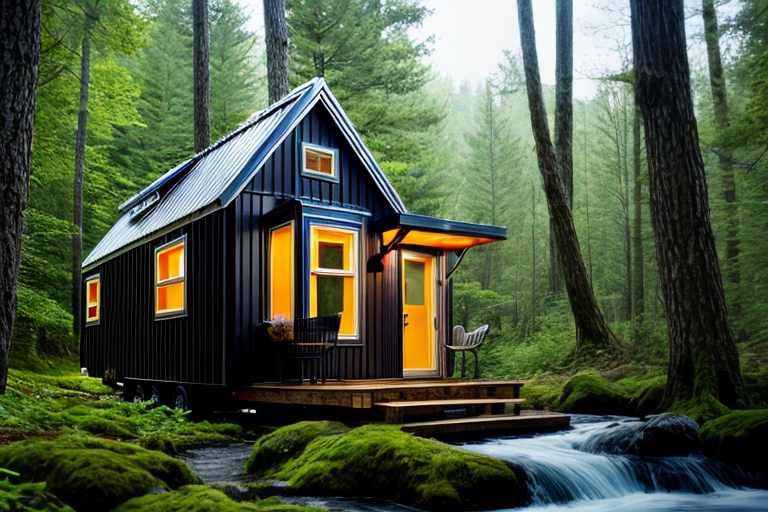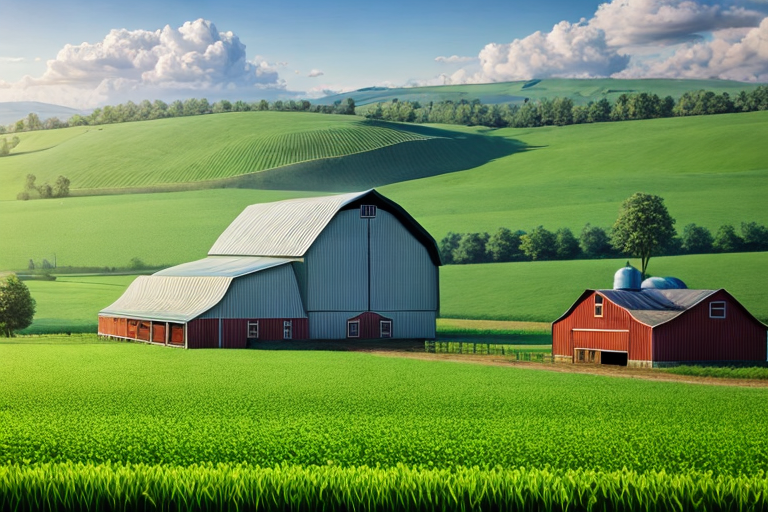
Living off the grid has become increasingly popular as people seek sustainable and self-sufficient lifestyles. One of the key components of this lifestyle is the use of renewable energy systems.
These systems not only provide a reliable source of power but also contribute to a cleaner and greener environment.
Solar power systems are among the top picks for off-grid living, harnessing the energy of the sun to generate electricity.
Similarly, wind energy systems utilize the kinetic energy of the wind to generate power, making them ideal for coastal regions or open landscapes. For those with access to running water sources like streams or rivers, micro-hydro power systems can be a great choice.
These systems harness the flow of water to generate electricity. When it comes to off-grid living, incorporating renewable energy is essential.
Click here to learn more Survival Tips from Pro Outdoor Survival
Basics of Renewable Energy Systems
That individual’s and communities can meet their energy needs without being connected to the traditional power grid. Off-grid living is a growing trend, as it offers a way to be self-sufficient and have more control over power generation.
Sustainable energy solutions are essential for enabling this lifestyle, as they harness natural resources like sunlight, wind, and water to generate clean and green power.
By relying on renewable energy systems, individual’s and communities can live off the grid and reduce their dependence on fossil fuels.

Types of Renewable Energy Options
When it comes to sustainable living solutions, there are several eco power systems available that can help businesses and individual’s reduce their carbon footprint. Solar power, wind power, and hydropower are some popular options that utilize natural resources to generate electricity.
These self-reliant energy systems not only provide standalone power for off-grid living but also contribute to a cleaner and healthy environment.
Another renewable energy alternative is bioenergy, derived from organic matter, which can be used for heat, electricity, and even transportation purposes.
By embracing these green energy options, businesses and individual’s can contribute to a more sustainable future while meeting their energy needs.
| Renewable Energy Option | Key Benefits |
|---|---|
| Solar Power | Utilizes sunlight to generate electricity |
| Wind Power | Harnesses wind energy to produce electricity |
| Hydropower | Converts flowing water into electricity |
| Bioenergy | Derived from organic matter for heat, electricity, and transportation |
Sustainability of Off Grid Renewable Energy Systems
Off-grid renewable energy generators offer sustainable and independent power solutions for those seeking self-sufficiency. These environmentally-friendly power systems utilize clean energy sources such as solar, wind, and hydropower to generate electricity.
By embracing these autonomous energy solutions, individual’s and communities can achieve self-sustainability and reduce their dependence on traditional power sources.
These eco-friendly systems not only reduce carbon emissions but also help preserve natural resources for future generations.
These sustainable energy solutions provide a reliable and cost-effective alternative, enabling individual’s to cut down on their energy expenses and promote energy autonomy. It is important to consider the initial investment costs, maintenance requirements, and proper system design when implementing these independent living solutions.
By addressing these factors, individual’s can make well-informed decisions when opting for these off-grid power systems.
Clean Energy Solutions for Off Grid Living
Living independently from traditional grid systems has become increasingly popular as people strive for sustainable and self-sufficient lifestyles. One of the main challenges in this lifestyle is finding reliable and environmentally friendly sources of energy.
Thankfully, there are numerous standalone energy systems available that can power homes and communities without relying on the grid.
Renewable energy technologies, like off-grid solar systems and wind turbines, use the sun and wind, respectively, to generate electricity.
Hydroelectric power is a viable option for those living near rivers or streams. These sustainable energy solutions, along with efficient energy storage systems, ensure a consistent and autonomous energy supply, promoting a greener future for those living off the grid.
Off-Grid Energy Systems
- Off-grid systems provide sustainable and self-sufficient lifestyles.
- Renewable energy technologies like off-grid solar systems and wind turbines generate electricity without relying on the grid.
- Hydroelectric power is a viable option for those living near rivers or streams.
- Efficient energy storage systems ensure a consistent and autonomous energy supply for off-grid living.
Components of self-sufficient Energy Systems
As more individual’s seek clean power alternatives and self-reliant power solutions, the popularity of energy systems that are self-sufficient is increasing. These systems consist of independent power sources, such as wind systems for off-grid living, sustainable energy appliances, and power generation systems for off-grid living.
By utilizing renewable energy sources like solar panels, wind turbines, and hydroelectric generators, these systems provide a reliable and eco-friendly energy supply.
An important aspect of self-sufficient energy systems is efficient distribution and management systems.
This includes inverters that convert DC electricity into AC electricity, intelligent meters, and energy management systems that optimize energy usage. With these sustainable energy solutions in place, self-sufficient energy systems offer an autonomous and eco-friendly power solution for a greener future.
Solar Power Systems for Sustainable Living
Solar power systems have become an essential component of sustainable living, providing reliable and eco-friendly energy solutions for both homes and businesses. These self-sufficient power sources offer independence from traditional energy grids, making them an attractive choice for those seeking off-grid living.
With advancements in clean energy technologies, solar power systems have become a cost-effective option for sustainable living.
By harnessing the power of the sun, individual’s can reduce their reliance on fossil fuels and centralized power grids, contributing to a cleaner environment and a healthy planet for future generations.
Solar Power Systems
- Solar power systems reduce greenhouse gas emissions, helping to combat climate change.
- Solar energy is a renewable resource, meaning it will never run out as long as the sun continues to shine.
- Installing solar panels can increase the value of a property, providing a return on investment for homeowners and businesses.
- Solar power systems can significantly lower electricity bills, saving individual’s and businesses money in the long run.
Advantages of Wind Energy Systems
Wind energy systems provide a range of advantages that make them a popular choice for sustainable power options. One key benefit is their capacity to provide independent energy storage, allowing individual’s and communities to rely on renewable energy systems.
These eco-friendly technologies can be installed in various areas, both onshore and offshore, offering self-sufficient power alternatives.
Wind energy systems have a lengthy lifespan and require little upkeep, making them an economical choice for generating clean power.
With their small size and enhanced efficiency, wind turbines are a reliable solution for those pursuing off-grid living.
Incorporating Autonomous Power Systems
When incorporating autonomous power systems, it is crucial to consider the integration of renewable energy components. These components, such as solar panels or wind turbines, utilize sustainable energy sources to generate electricity.
By relying on these green energy technologies, businesses and communities can not only reduce their carbon footprint but also become more self-sufficient in their power needs.
One important aspect to consider is off-grid power storage.
This allows for the storage of excess energy generated from eco-friendly power generators, ensuring a constant and reliable power supply. Off-grid power storage is particularly beneficial in remote or rural areas where access to traditional power sources may be limited.
The incorporation of autonomous power systems involves the utilization of clean energy equipment. These devices not only generate electricity but also contribute to a cleaner and more environmentally friendly setting.
By embracing self-sufficient power sources, businesses and individual’s can take a proactive step towards a sustainable future.
Building a self sustaining homestead Ultimate guide
Alternative Medicine Discover Off Grid Care








